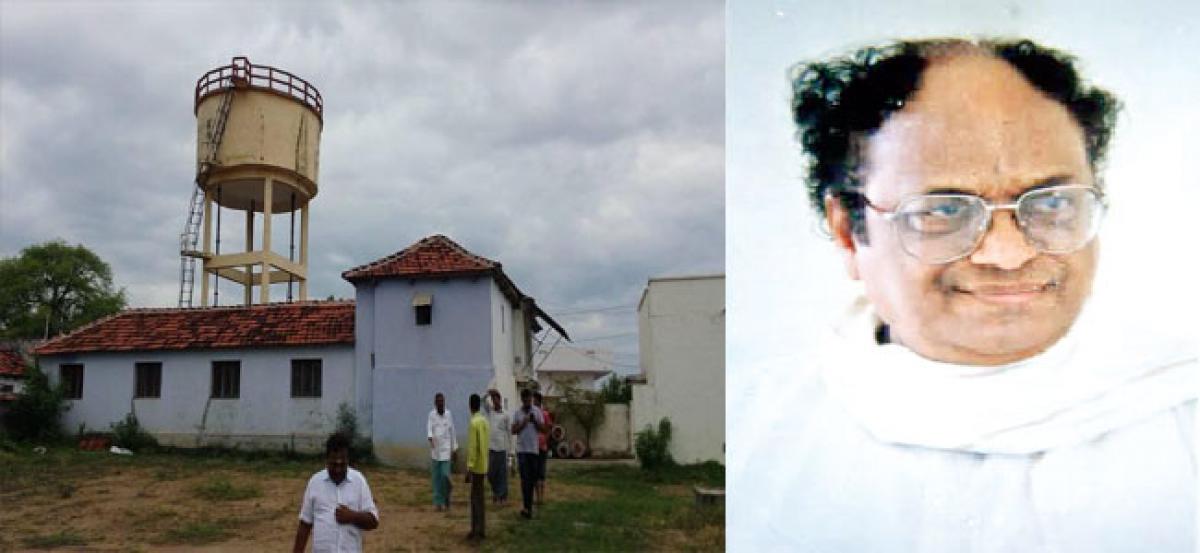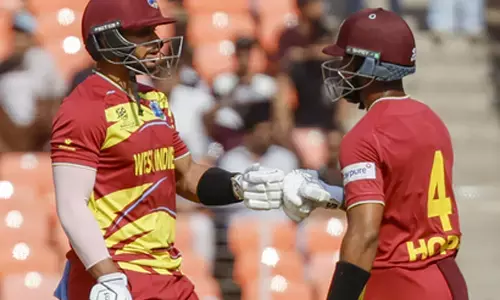Literary legend walks into history

But for the Cinare-NT Rama Rao combo’s derring-do act, who would have dared to dream a duet - Chitram Bhalare Vichitram - involving the villain of Mahabharath - Duryodhana and his little known wife Bhanumathi in Daana Veera Soora Karna, which drew a round of applause from the audience?
Born in an agriculture family in Hanumajipet village of Karimnagar, Cinare rose to become a bright star in Telugu literary firmament
Hyderabad: But for the Cinare-NT Rama Rao combo’s derring-do act, who would have dared to dream a duet - Chitram Bhalare Vichitram - involving the villain of Mahabharath - Duryodhana and his little known wife Bhanumathi in Daana Veera Soora Karna, which drew a round of applause from the audience?
It was in 1962, Cinare, then professor in Osmania University, got an invite from none other than legendary actor NT Rama Rao to write lyrics for his home production film - Gulebakavali Katha, and the rest is history. One of the songs fm this movie - Nannu Dochukunduvate Vannela Dorasani made Cinare popular. In all, he had over 3,500 songs to his credit.
Born in an agriculture family to Malla Reddy-Buchamma couple in Hanumajipet village of Karimnagar (now in Rajanna-Sircilla) district on July 29, 1931, Cinare showed his penchant for academics right from his childhood. When his mother refused to send him to Vemulawada for further studies after his primary education in their village, he jumped into a nearby agriculture well. He did his schooling in Vemulawada, Sircilla and Karimnagar Multipurpose High School.
He was equally proficient in Telugu and Urdu with the latter was medium of instruction in those days. During this period, the seeds of poetry started to sprout in him. It was Seshadri Ramana Kavulu, abridged name for the joint poets Dhupati Seshacharyulu and Dhupati Venkata Ramanacharyulu, who identified elegance of lyrical expression in him, encouraged Cinare.
Later, he did his Intermediate in Chaderghat and then completed his BA (1952) and MA (Telugu) from Osmania University in 1954. He was the editor of Shobha magazine of the Arts College, besides continuing literary work with pen names - Rochin and Simhendra.
From his first poetic work ‘Navvani Puvvu’ in 1953 to his Ningikegire Chettu in 2014, Cinare experimented with different paths encompassing lyrical romanticism, optimistic humanism, progressive idealism and healthy realism, and emerged as an outstanding contributor to the Indian literature.
After PG, he worked as Telugu lecturer in Secunderabad Arts and Science college and then in Nizam college. After completing Ph D (Modern Traditions of Telugu) in 1962, he joined as a Reader and Professor in OU. He also served as vice-chancellor of the Telugu University between 1989 and 1992.
Viswambhara, his magnum opus that earned the Jnanpith award in 1980, is one among many laurels including the Sahitya Akademi Award, Soviet Land Nehru Award, Kumaran Asan Award of Kerala, Bhilwara Award of Bharatiya Bhasha Parishad, Kolkata, Kala Prapoorna award of Andhra University and Raja Lakshmi award.
To top these awards, Cinare was also honored with Padma Bhushan, the third highest civilian award in the country, for his contribution to the literature in 1992. He was nominated to Rajya Sabha in August 1997. Nine Ph Ds and 28 M Phil research works on his literature are testimony to his greatness.
Incidentally, he was the only one from Telangana to receive Jnanpith award. Some of his famous works include ‘Karpoora Vasantha Rayalu’, ‘Ramappa’, ‘Divvela Muvvalu’, ‘Mantalu Manavudu’, ‘Prapancha Padulu’ and ‘Nagarjuna Saagaramu’.
Many of his works were translated into other languages. He has four daughters – Ganga, Yamuna, Saraswathi and Krishnaveni. Cinare instituted Suseela Narayana Reddy Trust in memory of his wife Susheela. The trust is giving Rs 50,000 cash award to women writers annually.
By Adepu Mahender










